The Gift of South Dakota
Subscriptions to South Dakota Magazine make great gifts!
Subscribe today — 1 year (6 issues) is just $29!
The Trainer from Marcus
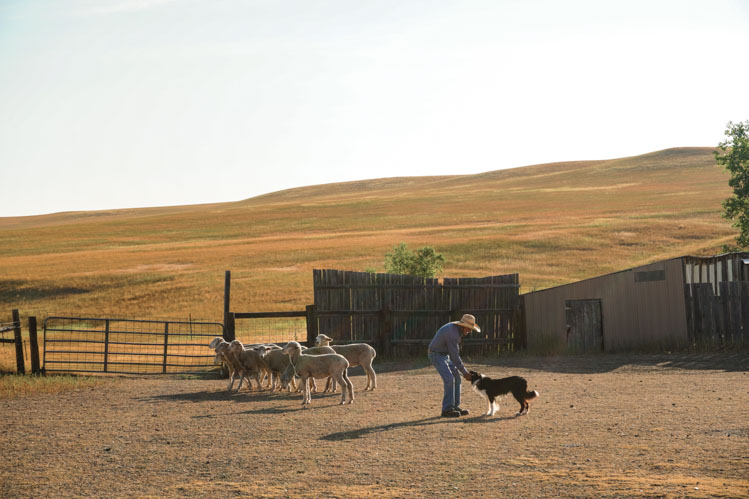 |
| Bud Boudreau says every dog's mind is different, "and it takes patience to understand each one." |
Bud Boudreau wakes at 3 a.m. on most mornings. He drinks a cup of black coffee, dresses and dons a cowboy hat and boots, strings a dog whistle around his neck and walks out to the barn to start another day of training border collie sheepdogs. He hasn’t missed a sunrise in 60 years.
One morning I rose early as well and drove down Highway 34, past Bear Butte and Union Center in Meade County, to learn more about a little-known man who is credited with changing the way we herd sheep on the Northern Plains. The daughter of a sheep rancher, I still remember the excitement of Boudreau arriving at our ranch with a mule named Lenore, a truck full of border collies and a lifetime of stories.
I spent the last 7 miles of my drive that morning on gravel roads. Admittedly, I had to call Boudreau to confirm I wasn’t lost. I arrived just in time to accompany him as he headed to the barn. A symphony of wagging tails, excited whines and barks greeted us. The old man fed the dogs and cleaned the kennels. Then he saddled his palomino horse, collected the dogs from their individual kennels and let them exercise for a while. He told them to sit and they sat. He called them by name back to the kennels. The dogs were quiet as they waited to see who would be the first to work. He called for Dot, and she waited triumphantly by the barn door.
Boudreau, who is now 84, rode his horse out to the pasture with Dot by his side. She watched him intently for a signal to bring in the herd of Targhee sheep. With one word, “Away,” he sent the dog counterclockwise in a graceful, wide arc around the herd. I squinted to see Dot’s dark silhouette against the sleepy horizon — about half a mile away.
With varying sounds from his whistle, Boudreau signaled Dot to go clockwise, counterclockwise, walk up, look, speed up, slow down, stand or sit. Dot interpreted the slightest change in tone of the dog whistle or pitch of Boudreau’s voice to mean a different command. Boudreau and his border collies have their own language.
“The dogs have such instincts bred into them,” he says. “It’s remarkable. It’s easy to teach them because a well-bred dog already has the instincts.” Watching Boudreau in the field with his dogs is like watching a music conductor. He makes the slightest sound and the dog bursts into obedient motion. The dogs are sensitive to his body language as well as the subtle movements of each animal in the herd.
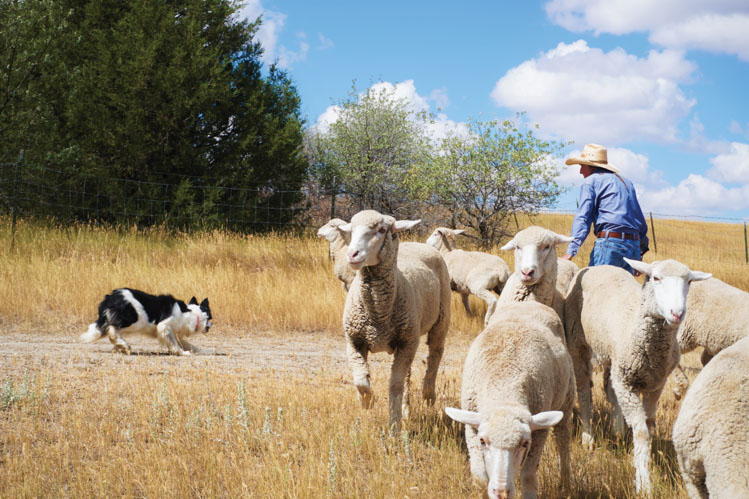 |
| "It was the strangest feeling for me," Boudreau says of his move from Maryland to the open spaces of West River. |
Border collies have been used for centuries to herd sheep. Today they are invaluable members of many sheep ranches in South Dakota and other states where herds are large, in part because Bud Boudreau came here 40 years ago.
It’s fitting that “collie” is Gaelic for “useful,” because a sheepdog can do more with sheep than several cowboys on horseback. The border collie breed can be traced back to the United Kingdom, to an era when wool was a big part of the economy.
Sheepdog trials also originated in Europe but soon became popular in the eastern United States. Trials are competitions that test a dog’s ability to herd sheep in cooperation with its handler. Dogs must successfully complete the “outrun” or initial gathering of the sheep and “drive” them through different patterns of panels. Typically dogs must then “shed” the sheep or separate a few from the rest of the herd, and then pen the sheep in a corral within a time limit.
According to Boudreau, Englanders literally wrote the book on how to train sheepdogs. He learned the basics by reading an English text when he was in his early 20s, but his fascination with border collies started long before that. When he was 10 years old, his aunt stole him away from the family dairy farm in Michigan to see a short film called Arizona Sheepdog. The black and white documentary kindled his lifetime fascination.
Several years later, a neighbor imported two dogs from Great Britain and brought them to the dairy. Boudreau was amazed by how they could round up cattle, just as he remembered seeing in Arizona Sheepdog. By then, Boudreau’s dad had converted the dairy farm into a racehorse training facility. He helped care for more than 40 racehorses and he broke thoroughbred colts. A fearless young horseman, Boudreau preferred to gallop the ornery young horses around the track in the early morning because they “weren’t so tough if they couldn’t see where they were going.”
Boudreau embraced his dad’s racehorse business and eventually took it over. But he also dreamed of training border collies. As a father of four — Dean, Jean, Jimmy and Susan — he marveled at the neighbor’s dogs’ habitual herding of his toddler children. “I got real excited one day when that dog was herding my kids around the yard,” he remembers.
Boudreau became well known in the horse racing world and ran the family business successfully for more than 20 years before his ambition led to a once-in-a-lifetime opportunity to train and shoe horses for Alfred Vanderbilt, owner of Sagamore Farm and Baltimore’s Pimlico Racetrack where the Preakness Stakes is held today. Alfred, a pillar in the horse racing community, was the grandson of Cornelius Vanderbilt, the world’s richest man in the late 19th century.
Sagamore Farm gave Boudreau the opportunity to work with famous trainers and fine horses like Kentucky Derby winner Native Dancer. However, Boudreau arrived in Maryland in a full body cast after a “brawl” with a young colt. Knowing Boudreau’s reputation, Vanderbilt waited a month for him to recover. He started his job caring for broodmares, shoeing horses and training 2-year-old colts. “I woke up at 4 a.m. and was done by mid-morning with nothing to do in a strange place. I was bored and had a lot of time to think,” he remembers of his Maryland days. “I thought a lot about sheepdogs.”
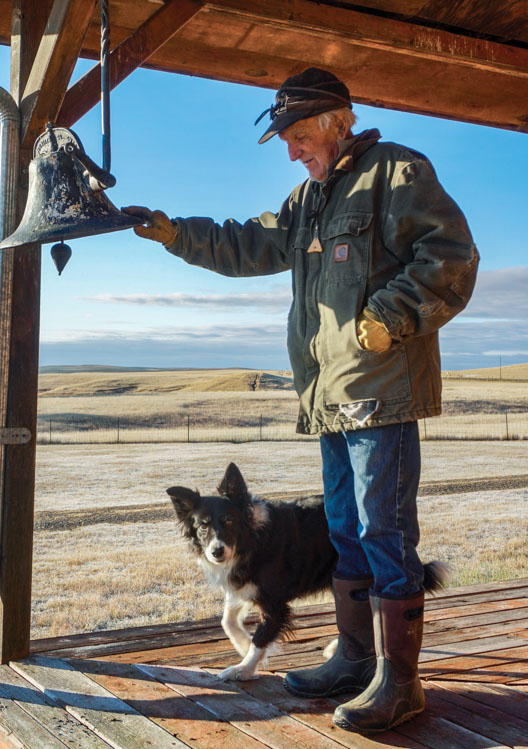 |
| Bud Boudreau has trained dogs and horses. He prefers dogs, he says, because of their intelligence. |
Life changed when a friend gave him a border collie as a gift. Boudreau took the dog to a sheepdog clinic in Virginia in 1982. Jack Knox, a famous Scottish dog trainer, led the program and was impressed with Boudreau’s self-taught knowledge and his ability to interpret a dog’s movement. Boudreau soon met Ralph Pulfer and Bruce Fogt, two of the most respected experts in the industry. He credits them with making him the trainer he is today.
He returned from Virginia determined to train sheepdogs. After working on the track each day, he spent time with his dogs and a small herd of Barbados black-bellied sheep he had purchased. “I would shoe horses for folks in exchange for time on racehorse farms to work my dogs. I would pull up with my trailer, unload my Barbados, then spend the afternoon training the dogs.”
However, he felt he had a foot in two quite different worlds — horse racing and sheepdogs. He knew what he wanted to do with his life, but the decision to train dogs full time would be costly. He had spent years in the horse racing world, achieving credentials, connections and financial security. In six years, Boudreau had become Sagamore’s resident farrier and even shoed horses for the historic Green Spring Valley Hounds and Hunt Club. “I had it made, but I felt like I wasn’t fully committed to the horses or the dogs. I had to choose. I chose border collies.”
When he revealed his plans, the head trainer at Sagamore Farm told him he was, “making a big mistake.” Boudreau chuckles at the memory. “Everyone thought I was plum crazy.” Boudreau left the stables in the hands of his son, Dean, who had been his apprentice.
Not long after deciding to train dogs full time, Boudreau saw an ad for affordable land in South Dakota near the tiny community of Marcus, about an hour’s drive east of the Black Hills. In 1986, he loaded all his belongings, including nine border collies and eight sheep, in a homemade trailer and Toyota truck and headed west. “I moved with my dogs to a cabin on White Owl Creek,” he remembers. “It was the strangest feeling for me; I went from a very crowded area in Maryland to not seeing another human being for weeks at a time.”
In 1988, Boudreau’s three sons traveled there and built a log home for their dad from scratch, incorporating materials from the original homestead 2 miles from the house. Boudreau had spent the winter collecting stones from the dilapidated homestead shack for his sons to repurpose into a hearth and chimney. The original homestead stove sits in Boudreau’s kitchen, a tribute to the pioneers that lived at Marcus before him. “I still make my famous waffles on it from time to time,’’ he says with a smile.
Boudreau’s sons pooled their skills for the cabin construction. Local ranchers provided further assistance. For example, Boudreau traded help installing Sheetrock for dog training. “My boys had so much fun building the house and the neighbors got a kick out of it too. They would stop by to see the progress every now and then. It was a special time for me.” Boudreau also planted a tree grove behind his house that now provides protection from the strong prairie winds.
*****
With hill country, a river and expanses of land, the Marcus ranch proved ideal for training sheepdogs. Boudreau also fell in love with the resiliency of his neighbors. He believes South Dakotans are special. “People here understand hardship but are some of the most content people I’ve ever known. It’s because they’re doing what they want to do with their lives. Out here in the country, you have to love what you do to stay. I feel I have lived in the best generation that ever was in the U.S. and I couldn’t be luckier to end up in South Dakota.”
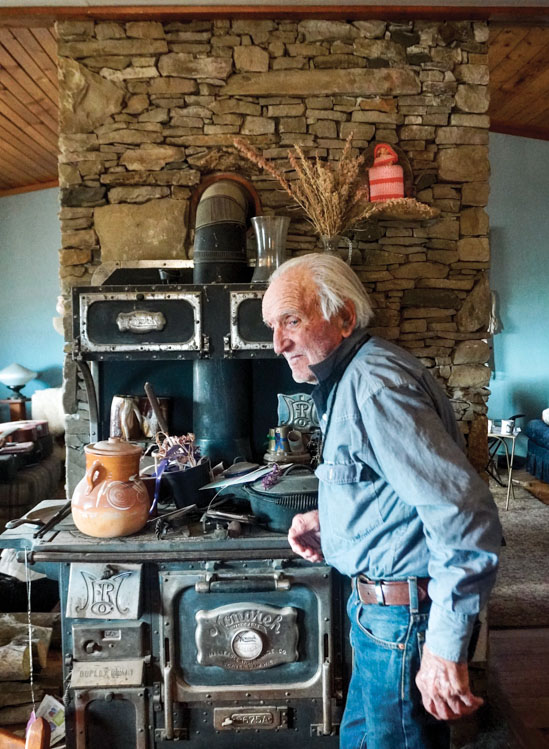 |
| Bud Boudreau's house includes a stone fireplace and a woodstove salvaged from a homesteader's cabin. |
Despite the rural location, sheepdogs have taken him on adventures he would have forfeited had he stayed at the racetrack. He has even competed at international competitions in Ireland.
One of his most memorable trips came in 1993 when he met his future wife, Sarah, at a sheepdog trial in Durango, Colorado. They have worked dogs together nearly every day since they got married in 2000 at nearby Sturgis. Sarah shares his love for sheepdogs and competes in trials. She also serves as a judge at competitions.
For eight years, the Boudreaus hosted a dog trial at their home near Marcus that attracted judges from Great Britain and competitors from all over the country. Bud and Sarah, along with help from Ross Lamphere and Jim Roth, also started the popular midwinter North American Sheepdog Trials at the Black Hills Stock Show. Apart from dogs, the Boudreaus also share a love for music. Sarah spent five years in Italy playing the French horn in Milan’s Pomeriggi Musicali Orchestra. Today, Bud’s old guitar hangs in their living room, and he says he knows he’s “doing okay” when Sarah recognizes a tune. He thinks playing the guitar has similarities to training dogs. “You never want to practice a mistake,” he explains.
The couple’s accomplishments also led to an adventure on a big ranch along the Rio Grande River, where Tommy Hayre raises more than 20,000 goats and sheep on 110,000 acres. Boudreau’s skill with dogs was an invaluable resource on the rough, West Texas terrain. “The goats were so smart, they’d hide in caves and you’d have to ride in with the dogs on horseback to gather them,” he recalls. During the drought year of 1998, Hayre sent Boudreau to his ranch in Argentina for two weeks to show Argentinian cowboys (gauchos) how to use sheepdogs.
Boudreau recorded the trip in a detailed journal that he shared: “We stood around the adobe kitchen, with a fire going in the fireplace. Later on I found out there was never an oven in a gaucho residence. There is always a fire in the fireplace, both summer and winter. On the table was a blackboard that had been purchased in town, with the commands — ‘away,’ ‘come,’ ‘sit,’ ‘walk up,’ and ‘that’ll do’ — written out in a way that they could pronounce.”
Boudreau drank maté from a silver gourd and bombilla, ate mutton ribs from a 2-foot machete and rode countless miles in the pampas. “Living with the gauchos was an experience I’ll treasure forever,” he says. He left Argentina confident that his dogs had found worthy handlers in José, Tabares and Ramón.
Sheep ranchers in South Dakota and around the world appreciate the talents of the man from Marcus. Boudreau was inducted into the American Border Collie Association Hall of Fame last September, an honor he considers a highlight of his life. He was “in shock” to hear the news, but western sheep ranchers believe the recognition was long overdue.
In a nomination letter, Montana rancher Kelly Bradley wrote, “This part of the country had big numbers of sheep running on it and yet, in the 1980s and 1990s, there were not many places using dogs and certainly not realizing the potential of a well-bred and trained border collie. Bud Boudreau almost single-handedly changed all that for us ranchers when he came to this country and went to work educating so many of us about border collies. For many, it was the first chance to see stock dogs that did more good than harm to their stock.”
My father, Gene Johnson, met Boudreau at a neighbor’s sheep shearing in Harding County. He’s become a reliable presence at our own sheep shearings ever since. Dad says the trainer brought better technique and finesse to our ranch. “I appreciate Bud’s knowledge of sheep and dogs,” Dad told me. “But I also appreciate him as a great friend and mentor to me. He has a way of making hard work more enjoyable because he’s there.”
Boudreau helps ranchers train their own dogs and he has sold dogs to others. Just as he did at our family’s ranch, he also taught sheep growers the benefits of dogs by just showing up to help. When he came to our place, we always offered him a room, but he preferred to sleep in the truck near the dogs, who had a strict bedtime of 7:30 p.m.
We loved his visits because the work always seemed to go more smoothly. Boudreau and a couple of his dogs could round up huge groups of sheep without help. Their movements were like magic to me and I wanted a dog of my own. Finally, Dad traded Boudreau some sheep for our border collie, Kate, after he took her to the National Sheepdog Finals in 2015. He also gifted me a dog whistle, and he came to the ranch to show us how to use the many commands.
He says every dog has its own peculiarities. “I won’t sell a dog I’m not confident in. Sometimes a dog will take years to get to the place where I feel confident in finding him a home. Every dog’s mind is different and it takes a great deal of patience to understand each one,” he says.
Because every dog needs hands-on attention, it’s an inexact and difficult business model. “I’ve been dead broke,” Boudreau admits. “Some people live paycheck to paycheck; I live border collie to border collie. Once a dog gets to be worth a certain amount, I can’t afford to keep him. If he gets hurt, there goes my paycheck.”
Still, he has never regretted leaving his better-paying career with East Coast horses.
“Training dogs has made training horses boring because of their intelligence. It’s a different kind of art form. It requires more finesse because the dogs get so fixated on the sheep, they have to rely on your voice only, and you have to hope they listen, and keep cool if they don’t.”
Boudreau’s philosophy on raising dogs sounds like parenting advice. “You have to be somebody that commits. A collie’s mind is like a growing child — you can’t miss a day. You have to be prepared to exercise their mind daily.”
He also emphasizes positive reinforcement. “I want them to stop doing wrong because they love the outcome of doing right. I want them to think of me as a safe place to look to. In order for that to happen, you have to keep calm. You can’t lose your cool. I want my dogs to look forward to training as much as I do.”
Spend a morning with Boudreau and his dogs and one thing becomes as clear as a Meade County sunrise: The dogs live to hear his gentle voice saying, “that’s a good boy.”
Editor’s Note: This story is revised from the January/February 2023 issue of South Dakota Magazine. To order a copy or to subscribe, call (800) 456-5117.


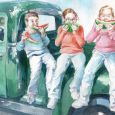
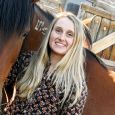


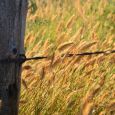
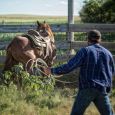
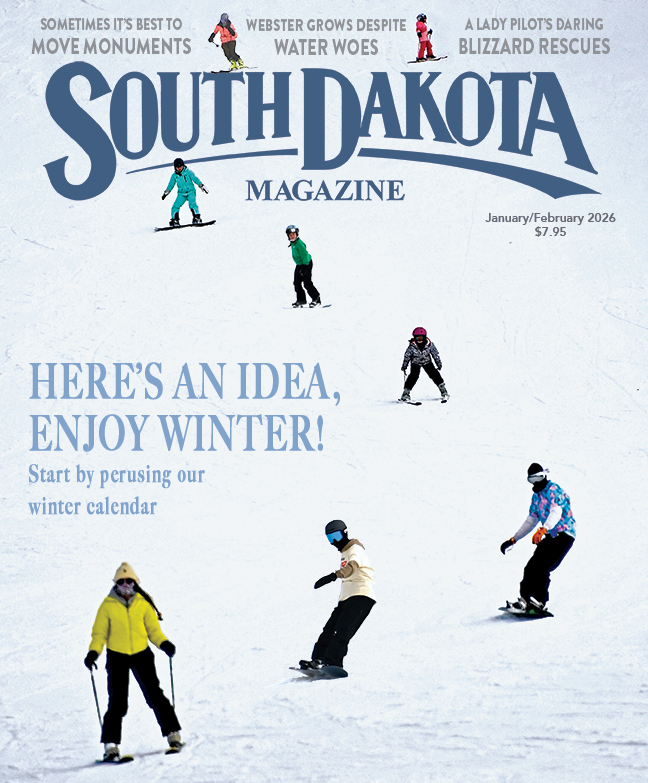
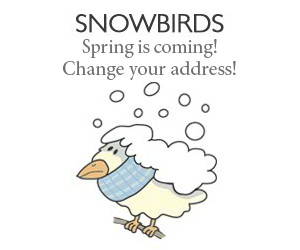
Comments